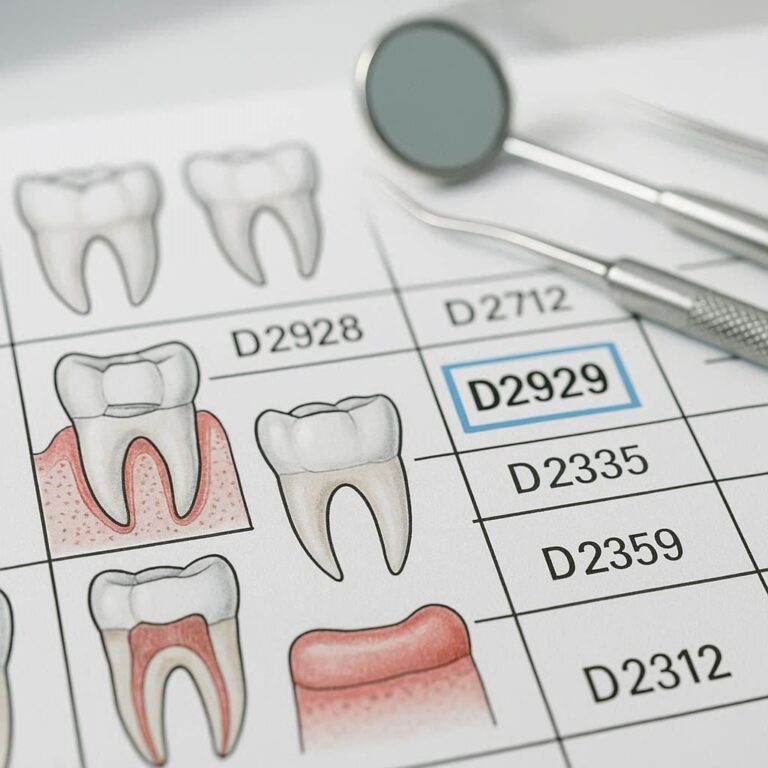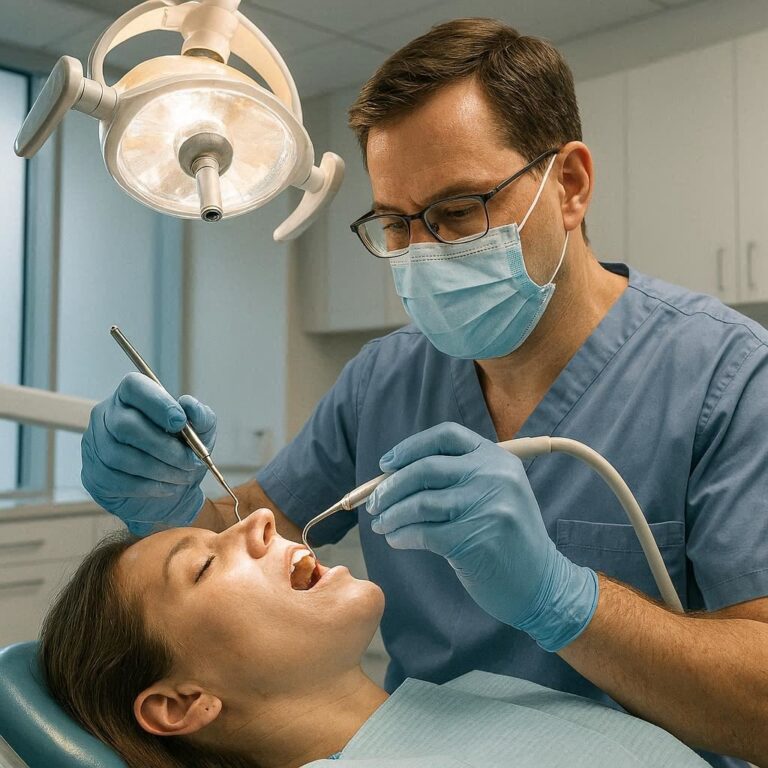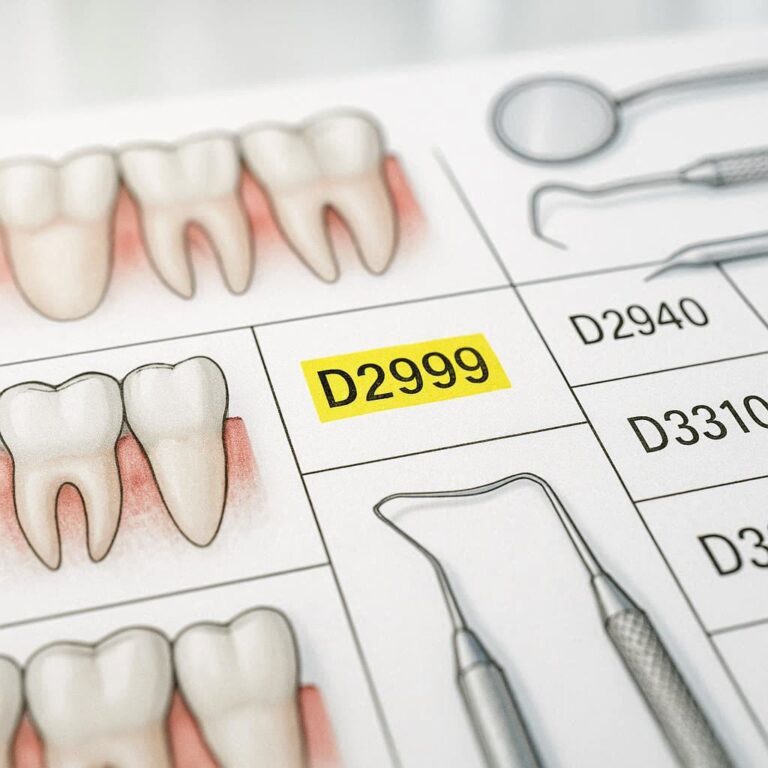The Ultimate Guide to Convert Dental Codes to Medical Codes
The convergence of dental and medical fields has led to the increasing need to convert dental codes to medical codes accurately. This process is crucial for ensuring that patients receive the correct billing and insurance claims are processed smoothly. Whether you are a dentist, a medical coder, or a healthcare administrator, understanding how to convert dental codes to medical codes is essential for maintaining compliance and optimizing the reimbursement process.

Understanding the Importance of Converting Dental Codes to Medical Codes
Converting dental codes to medical codes is vital because many dental procedures have medical implications. For instance, treatments related to oral surgery or management of systemic conditions affecting oral health often require billing under medical insurance. Proper code conversion ensures that these procedures are accurately represented in medical records, allowing for appropriate reimbursement and continuity of care.
How to Convert Dental Codes to Medical Codes
Basics of Dental and Medical Coding
Dental coding primarily uses the Current Dental Terminology (CDT) system, while medical coding relies on the International Classification of Diseases, Tenth Revision, Clinical Modification (ICD-10-CM) and Current Procedural Terminology (CPT). The CDT system covers dental procedures and services, whereas ICD-10-CM codes represent diagnoses, and CPT codes cover medical procedures.
Step-by-Step Guide to Conversion
- Identify the Dental Procedure: Start by determining the dental procedure performed, referenced by a CDT code.
- Determine the Medical Necessity: Assess whether the procedure has a medical necessity, which justifies converting it to a medical code.
- Find the ICD-10-CM Equivalent: Locate the ICD-10-CM code that accurately describes the patient’s condition related to the dental procedure.
- Match with CPT Code: If the procedure itself is covered under medical insurance, identify the appropriate CPT code.
- Double-Check for Accuracy: Ensure the conversion is accurate by cross-referencing with official coding manuals and resources.
Tools and Resources for Code Conversion
Several tools and resources can assist in converting dental codes to medical codes, including:
- Code Lookup Databases: Online platforms that offer code conversion tools.
- Coding Software: Specialized software that automates the conversion process.
- Professional Guidelines: Manuals and guidelines provided by the American Dental Association (ADA) and the American Medical Association (AMA).
Common Dental Codes and Their Medical Equivalents
Diagnostic Codes
- CDT Code D0120 (Periodic Oral Evaluation)
- ICD-10-CM Equivalent: Z01.20 (Encounter for dental examination and cleaning without abnormal findings)
- CPT Code: 99201 (Office or other outpatient visit)
Preventive Codes
- CDT Code D1110 (Prophylaxis – Adult)
- ICD-10-CM Equivalent: Z01.21 (Encounter for dental examination and cleaning with abnormal findings)
- CPT Code: 99401 (Preventive medicine counseling)
Restorative Codes
- CDT Code D2330 (Resin-based Composite – One Surface, Anterior)
- ICD-10-CM Equivalent: K08.432 (Partial loss of teeth, class I)
- CPT Code: 41899 (Unlisted procedure, dentoalveolar structures)
Oral Surgery Codes
- CDT Code D7140 (Extraction, Erupted Tooth or Exposed Root)
- ICD-10-CM Equivalent: K01.1 (Impacted teeth)
- CPT Code: 41899 (Unlisted procedure, dentoalveolar structures)
Orthodontic Codes
- CDT Code D8080 (Comprehensive Orthodontic Treatment of the Adolescent Dentition)
- ICD-10-CM Equivalent: M26.2 (Malocclusion, unspecified)
- CPT Code: 99213 (Office or other outpatient visit for the evaluation and management of a patient)
Dental Procedure Codes Lookup
Using Code Lookup Tools
Code lookup tools are essential for healthcare providers to find the correct medical equivalents of dental codes. These tools streamline the conversion process and ensure accuracy.
Key Databases and Resources
- AAPC Code Lookup: Offers a comprehensive tool for finding both dental and medical codes.
- CMS Code Lookup: The Centers for Medicare & Medicaid Services provide a robust search tool for medical coding.
- ADA Code Lookup: The American Dental Association offers resources for navigating CDT codes.
Dental Billing Codes
Understanding Dental Billing Processes
Dental billing codes are essential for processing insurance claims and ensuring that dental services are reimbursed accurately. Understanding the nuances of dental billing is key to avoiding claim denials and ensuring timely payment.
Integrating Medical Codes into Dental Billing
When a dental procedure has a medical aspect, it’s crucial to integrate medical codes into the dental billing process. This integration facilitates comprehensive billing and improves the likelihood of insurance approval.
Case Studies: Real-World Examples of Code Conversion
Case Study 1: Routine Dental Examination
- Procedure: Periodic Oral Evaluation (CDT D0120)
- Medical Necessity: Patient presents with systemic conditions impacting oral health.
- Converted Codes: ICD-10-CM Z01.20, CPT 99201
Case Study 2: Complex Oral Surgery
- Procedure: Tooth Extraction (CDT D7140)
- Medical Necessity: Extraction due to impacted teeth.
- Converted Codes: ICD-10-CM K01.1, CPT 41899
Case Study 3: Orthodontic Treatment
- Procedure: Comprehensive Orthodontic Treatment (CDT D8080)
- Medical Necessity: Treatment of severe malocclusion.
- Converted Codes: ICD-10-CM M26.2, CPT 99213
The Role of Technology in Dental to Medical Code Conversion
Software Solutions
Software solutions, such as practice management systems and coding software, can automate the code conversion process, ensuring accuracy and efficiency.
AI and Machine Learning in Code Conversion
Artificial intelligence and machine learning are increasingly being used to enhance the accuracy of code conversion, reducing the potential for human error.
Best Practices for Accurate Code Conversion
Common Mistakes to Avoid
- Incorrect Code Matching: Always verify that the medical code accurately reflects the dental procedure.
- Overlooking Medical Necessity: Ensure that the medical necessity is well-documented to support the conversion.
- Inconsistent Documentation: Maintain consistent and detailed documentation to back up the coding choices.
Tips for Ensuring Accuracy
- Regular Training: Keep up with changes in coding standards and updates.
- Use Reliable Tools: Employ trusted code lookup tools and resources.
- Double-Check: Always double-check codes before finalizing the billing process.
The Future of Dental to Medical Code Conversion
As technology advances, the process of converting dental codes to medical codes is expected to become more streamlined and accurate. With the integration of AI, machine learning, and more sophisticated software, the future looks promising for healthcare providers striving for seamless code conversion.
Conclusion
Converting dental codes to medical codes is an essential skill for healthcare providers, ensuring accurate billing and seamless patient care. By understanding the nuances of dental and medical coding, utilizing the right tools, and adhering to best practices, providers can optimize their billing processes and improve reimbursement rates.
FAQs
- Why is it important to convert dental codes to medical codes?
Converting dental codes to medical codes is crucial for billing medical insurance for procedures that have a medical necessity, ensuring accurate reimbursement. - What are the most common dental procedures that require conversion to medical codes?
Common procedures include oral surgeries, treatments related to systemic conditions, and orthodontic treatments. - Are there any tools to help with dental to medical code conversion?
Yes, several tools and software solutions, such as AAPC Code Lookup and CMS Code Lookup, can assist in the conversion process. - How can I ensure accuracy when converting codes?
Regular training, using reliable resources, and double-checking your codes can help maintain accuracy.
Additional Resources
- AAPC Code Lookup: Link to AAPC
- ADA Code Lookup: Link to ADA
- CMS Code Lookup: Link to CMS
- Coding Software Solutions: Link to Coding Software


